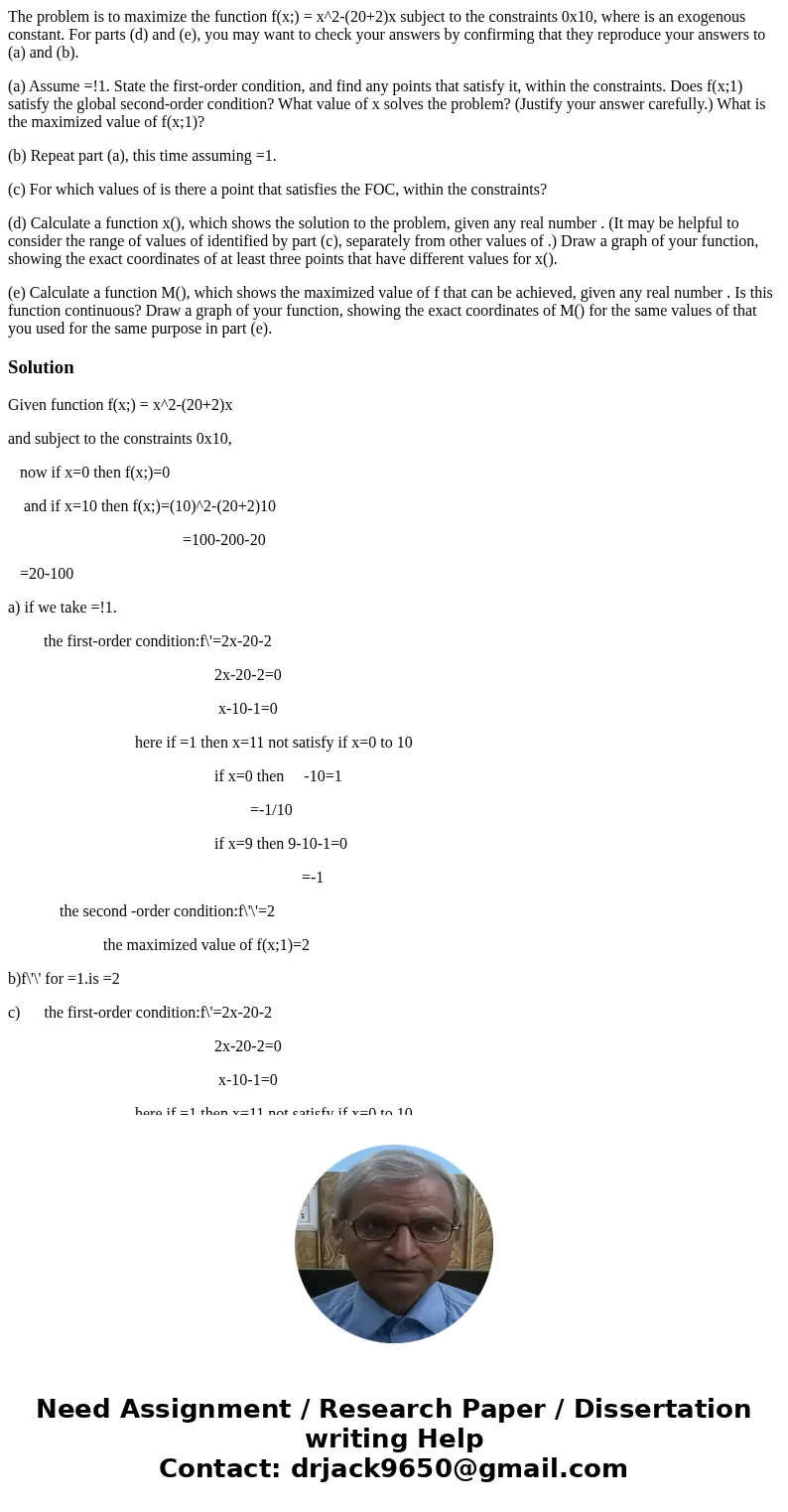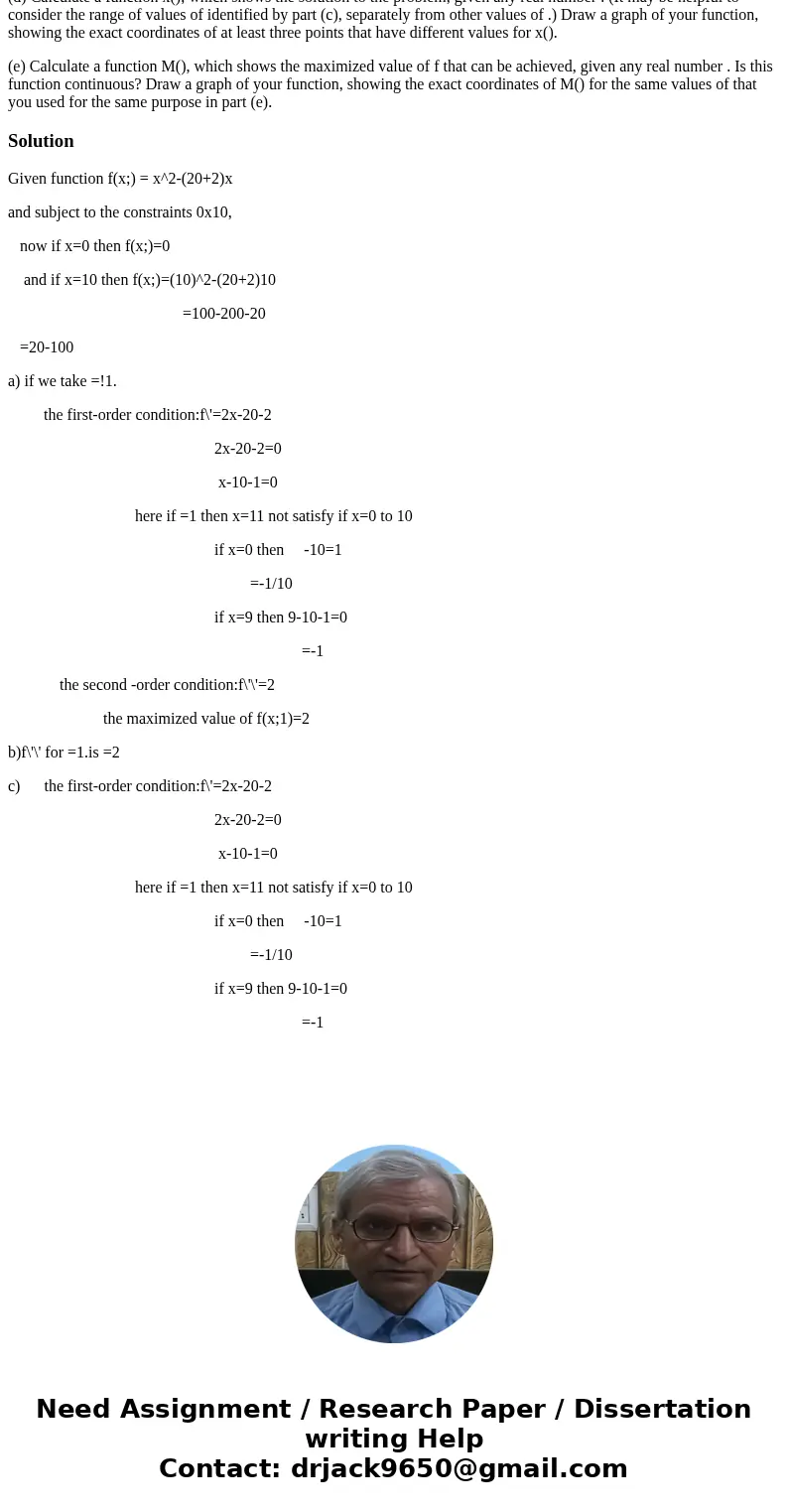The problem is to maximize the function fx x2202x subject t
The problem is to maximize the function f(x;) = x^2-(20+2)x subject to the constraints 0x10, where is an exogenous constant. For parts (d) and (e), you may want to check your answers by confirming that they reproduce your answers to (a) and (b).
(a) Assume =!1. State the first-order condition, and find any points that satisfy it, within the constraints. Does f(x;1) satisfy the global second-order condition? What value of x solves the problem? (Justify your answer carefully.) What is the maximized value of f(x;1)?
(b) Repeat part (a), this time assuming =1.
(c) For which values of is there a point that satisfies the FOC, within the constraints?
(d) Calculate a function x(), which shows the solution to the problem, given any real number . (It may be helpful to consider the range of values of identified by part (c), separately from other values of .) Draw a graph of your function, showing the exact coordinates of at least three points that have different values for x().
(e) Calculate a function M(), which shows the maximized value of f that can be achieved, given any real number . Is this function continuous? Draw a graph of your function, showing the exact coordinates of M() for the same values of that you used for the same purpose in part (e).
Solution
Given function f(x;) = x^2-(20+2)x
and subject to the constraints 0x10,
now if x=0 then f(x;)=0
and if x=10 then f(x;)=(10)^2-(20+2)10
=100-200-20
=20-100
a) if we take =!1.
the first-order condition:f\'=2x-20-2
2x-20-2=0
x-10-1=0
here if =1 then x=11 not satisfy if x=0 to 10
if x=0 then -10=1
=-1/10
if x=9 then 9-10-1=0
=-1
the second -order condition:f\'\'=2
the maximized value of f(x;1)=2
b)f\'\' for =1.is =2
c) the first-order condition:f\'=2x-20-2
2x-20-2=0
x-10-1=0
here if =1 then x=11 not satisfy if x=0 to 10
if x=0 then -10=1
=-1/10
if x=9 then 9-10-1=0
=-1


 Homework Sourse
Homework Sourse